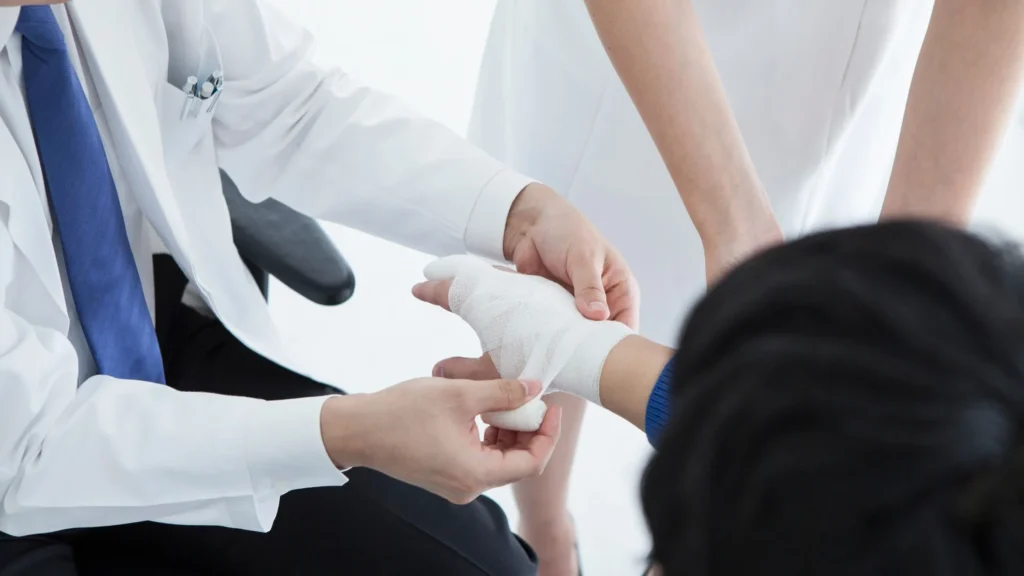
What to Do After a Car Accident That Wasn’t Your Fault
Car accidents are often stressful and overwhelming experiences, especially when you’re not at Fault. In such situations, it’s crucial to remain calm and take the appropriate steps to ensure your Safety, gather necessary information, and protect your legal rights. So, What to do after a car accident?
What to Do After a Car Accident
Ensure Safety First:
- Regardless of Fault, prioritize Safety above all else.
- If possible, move your vehicle to a safe location to prevent further accidents or hazards.
- Turn on hazard lights to alert other drivers and set up flares or warning triangles if necessary.
Check for Injuries: Assess yourself and your passengers for any injuries. If anyone is injured, call emergency services immediately. Even minor injuries should be documented and treated promptly.
Call the Police: Regardless of the accident’s severity, it’s advisable to call the police and report the incident. This creates an official record of the accident, which can be crucial for insurance claims, legal proceedings, and ensuring the health of all involved parties.
Exchange Information: Exchange contact, insurance, and vehicle information with the other driver(s) involved. Gather details such as names, phone numbers, addresses, driver’s license numbers, license plate numbers, and insurance policy numbers. Additionally, note down the vehicles’ make, model, and colour.
Document the Scene: Take photographs of the accident scene, including vehicle damage, skid marks, road conditions, traffic signs, and other relevant factors. These visual records can serve as valuable evidence later on. What to do after a car accident? It’s essential to capture these details to provide a clear picture of the collision’s circumstances. The documentation not only helps in determining Fault but also aids in assessing the extent of damages and injuries. Remember, the more thorough your documentation, the stronger your case during insurance claims or legal proceedings.
Collect Witness Statements: If there are witnesses to the accident, obtain their contact information and ask for their statements regarding what they saw. Witness testimonies can corroborate your account of the events and strengthen your case.
Notify Your Insurance Company:
- Inform your insurance company about the accident as soon as possible.
- Provide them with accurate details and cooperate fully with their investigation.
- Remember that you have the right to choose your repair shop, so don’t feel pressured to use a facility the insurer recommends if you have concerns.
Seek Medical Attention:

Even if you don’t initially feel injured, seeking medical attention is essential. Some injuries, such as whiplash or internal trauma, may not manifest symptoms immediately. Keep records of all medical evaluations, treatments, and expenses related to the accident.
Avoid Admitting Fault: Refrain from admitting Fault or making any statements that could be interpreted as an admission of guilt. Stick to factual information when discussing the accident with the other party, the police, or insurance representatives. What to do after a car accident? Providing accurate details about the events leading up to the collision is crucial without assigning blame. Focus on describing what you observed and experienced, such as the direction of travel, traffic conditions, and any relevant traffic signals or signs. Avoid speculating or offering opinions about who was at Fault, as this could complicate the claims process.
Preserve Evidence: Preserve any physical evidence related to the accident, such as damaged clothing, vehicle parts, or personal belongings. Keep all documents and communications related to the accident, including police reports, medical bills, and correspondence with insurance companies.
Consider Legal Counsel: Depending on the circumstances of the accident and the extent of your injuries, you should consult with a personal injury attorney. An experienced attorney can provide valuable legal advice, negotiate with insurance companies on your behalf, and represent your interests in court if necessary.
Follow Through: Stay proactive in managing the aftermath of the accident. What to do after a car accident? Follow up with your insurance company, healthcare providers, and other relevant parties to protect your rights, and you receive fair compensation for your losses. Keep track of deadlines for submitting paperwork or providing additional information, and don’t hesitate to reach out for clarification or assistance if needed. By staying actively involved in the process, you can expedite the resolution of your claim and minimize any potential delays or complications.
Know Your Rights: Familiarize yourself with your rights under state laws and insurance policies. Understand the coverage limits of your insurance policy, including liability, medical payments, and uninsured/underinsured motorist coverage.
Stay Calm and Patient: Dealing with the aftermath of a car accident can be frustrating and time-consuming, but it’s essential to remain patient and composed throughout the process. Remember that seeking resolution may take time, but staying organized and persistent can ultimately lead to a satisfactory outcome.
Learn from the Experience: Reflecting on the circumstances leading to the accident is crucial for personal growth and accident prevention in the future. Asking yourself, “What to Do After a Car Accident?” can be a pivotal question during this reflection process.
Conclusiuon
In conclusion, being involved in a car accident that wasn’t your fault can be a daunting experience, but knowing what steps to take can help protect your Safety, rights, and interests. What to do after a car accident? Following the guidelines outlined above and seeking appropriate assistance, you can navigate the accident’s aftermath more confidently and clearly.





